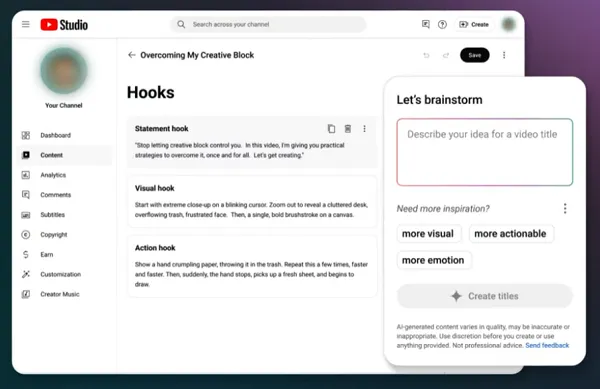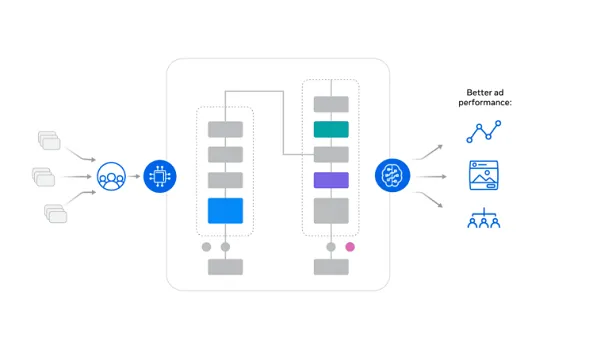In the new year, customer experience will remain a high priority for marketers. The aim will be consistent with previous years — seamless omnichannel journeys that are flexible and responsive to customer preferences. Of course, those preferences change.
One of the biggest changes next year won’t happen on customer touchpoints. It will happen in how marketers and organizations view customer experience. CX is widely expected to have a greater impact on business this year, playing a much larger roll in driving revenue and acquiring customers. Here are some of the ways marketers will adjust and leverage customer experience to achieve these goals in 2025.
CX alignment to build trust and brand recognition
Customer experience means engagement. Optimizing these engagements means strengthening all areas of the journey from branding to purchasing and post-purchase loyalty opportunities. In the coming year, marketers will look to boost CX to achieve all of the above.
“Creating a cohesive, purposeful experience across channels is critical to build trust, reinforce brand recognition and stand out in a crowded market,” said Karissa Sachs, VP of marketing for staffing consultancy Cella. “Marketers will need to ensure their martech stack is properly integrated and optimized along the customer journey to provide a clear view of customer behavior, preferences and past interactions to drive more strategic engagement and conversions.
Dig deeper: Moving up with marketing operational maturity
Appointing CX leaders
For many businesses in competitive industries, improving customer experience will mean appointing a CX leader within the organization.
“2025 will see brands continuing to create connected experiences, but those that will succeed are entering it with a new mindset,” said Britt Mills, VP of CX solutions at digital consultancy Bridgenext. “To do this, brands will need to appoint a CX leader to define that ‘CX North Star’ and evangelize across the organization. Without this alignment, even the most polished customer interactions risk falling short of expectations, presenting a key challenge for organizations.”
Dig deeper: What CX leaders do that laggards don’t
Focus on outcomes
With brands striving for more purposeful engagements in the new year, marketers will depend on metrics that measure outcomes.
“Brand content will undergo a redefinition in 2025,” said Joseph Perello, founder and CEO of creator marketing platform Props. “Success will no longer be measured solely by vanity metrics like impressions or engagement rates. Instead, marketers will focus on outcomes that truly matter, such as conversions, customer acquisition, and community-building.”
Perello predicts that brands will shift from traditional, scripted ads to more relatable customer-centric content.
“By putting the audience first and focusing on storytelling that fosters trust and emotional connection, brands will redefine how they engage customers, driving deeper loyalty and greater impact throughout the marketing funnel,” he said.
Some also see the pendulum swinging away from social media platforms and ads to investing more in owned websites.
“In 2025, as social media platforms evolve with stricter content moderation and shifting algorithms, brands, businesses, and the growing creator economy will find it increasingly difficult to reach their ideal audiences,” said Rachel Sterling, CMO of domain name technology company Identity Digital. “The result? A greater emphasis on owning and controlling your own narrative. Rather than relying solely on platforms where visibility can prove to be unpredictable, brands will turn to websites with descriptive domains that directly reflect their value propositions. These domains will serve as the key to building meaningful connections to products, services, and additional content without the risk of being lost in the noise of social media feeds.”
Customer education
Another way to grow the relationship is through educational experiences, especially in the B2B space.
Frances Kleven, senior director of core customer experience at online learning company LearnUpon, explains: “Organizations will need to stand out by describing and then delivering on a clear vision of what their customers can accomplish using their products. Increasingly, the space will be defined not by features and functions but by the problems that the tools solve for companies that use them.”
Kleven adds: “To generate value, CRMs/CSPs will need to be deeply integrated into the customer training tech stack so that customer education data can drive revenue insights.”
Optimizing customer experience with digital twins
Data is already an important component of ensuring that customer experiences are connected and seamless. In the new year, more marketers will be testing an emerging data strategy to optimize CX — digital twins.
“In 2025, the concept of digital twins — virtual replicas of customers built from vast amounts of data — will become a cornerstone of customer experience strategy,” said Radi Hindawi, SVP, enterprise success and services at customer experience company InMoment.
Hindawi explained, “These models mirror the behaviors, preferences and needs of real customers, enabling companies to personalize interactions and predict future actions with remarkable precision. In practical terms, they will allow businesses to test and refine CX designs before launching them in the real world, offering a risk-free environment to experiment with new strategies.”
These models will draw on structured and unstructured data, ranging from transaction histories to social media activity and connected home devices. Enterprises will use these to anticipate how segments will respond to customer experiences, marketing campaigns and product improvements and allocate budgets accordingly, Hindawi said.
Dig deeper: 6 steps to help improve customer experience with AI
Hyper-personalization for customer success
Real-time data, and the capacity to leverage it through customer experience, will give brands the ability to provide individualized service in the upcoming year.
“Customer success platforms will no longer rely on static playbooks,” said Hindawi. “Real-time data from every interaction — whether in-store visits, online behaviors, or product usage — will be unified to create dynamic, individualized customer journeys. These ‘segment-of-one’ frameworks will become the norm, as businesses use AI-powered tools to preempt customer actions and provide individualized recommendations and offers at the exact moment they are most relevant.”









































![Spider-Man Is Back in Black With the Green Goblin in New Funko Pop! Figures [Exclusive] Spider-Man Is Back in Black With the Green Goblin in New Funko Pop! Figures [Exclusive]](https://static1.colliderimages.com/wordpress/wp-content/uploads/2025/03/spider-man-the-animated-series-green-goblin.jpg)






























